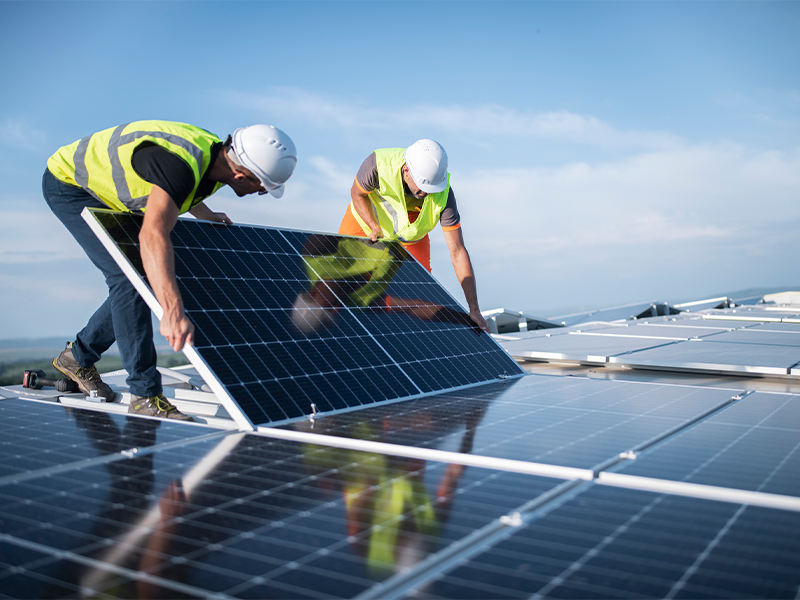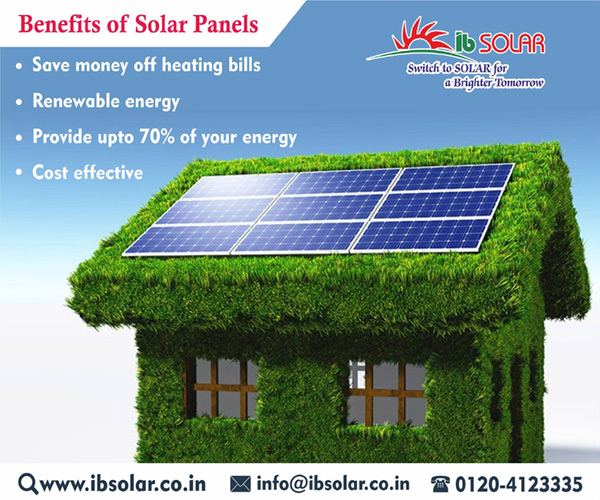Exactly How Solar Energy Can Aid You Save Cash and Decrease Your Carbon Footprint
The combination of solar power into your power portfolio provides an engaging chance for both monetary cost savings and ecological stewardship. As various federal government rewards come to be readily available, the concern arises: exactly how can one effectively navigate the first financial investments and ongoing advantages of solar modern technology to maximize both economic and environmental gains?
Comprehending Solar Energy Savings
While the change to solar energy typically involves a preliminary financial investment, understanding solar power financial savings is essential for house owners and companies alike. Solar energy systems can significantly reduce electrical power costs by using the sun's power, equating right into considerable long-term financial advantages. By generating their very own electricity, individuals minimize reliance on grid power, which goes through rising and fall rates. These financial savings can gather gradually, usually leading to a rapid roi.
Moreover, solar energy systems might receive various monetary incentives, consisting of tax obligation credit scores and refunds, better boosting their cost-effectiveness. The accessibility of web metering enables users to market excess power back to the grid, producing an extra revenue stream. These variables add to the overall savings related to solar power.

In addition to guide monetary financial savings, solar power uses the added advantage of increasing residential property worth. Residences equipped with solar panels are frequently much more appealing to customers, as they promise reduced power prices - Simply Solar Illinois. Recognizing these components is crucial for anyone thinking about solar energy, as it highlights not just the potential economic gains, yet additionally the wider ecological and economic advantages of embracing renewable power remedies
Initial Costs vs. Long-Term Perks
When reviewing solar power, it is necessary to consider the first expenses against the lasting advantages. The ahead of time financial investment for solar panels, installation, and relevant devices can be substantial, commonly varying from $15,000 to $30,000, depending upon the system size and home power requirements. This first expense might discourage some homeowners; nonetheless, it is important to consider the possible financial savings gradually.
Once mounted, solar power systems can dramatically decrease or also eliminate month-to-month power expenses, leading to considerable lasting economic advantages. Studies suggest that homeowners can conserve anywhere from $10,000 to $30,000 over the life-span of their solar system, commonly 25 years. Furthermore, several states provide motivations, tax obligation credit histories, and refunds that can offset preliminary prices, making solar much more easily accessible.

Decreasing Your Carbon Impact
Decreasing your carbon impact is a crucial factor to consider in today's environmentally aware society, and taking on solar power is just one of the most efficient methods to accomplish this objective. Solar energy is a tidy, renewable source that considerably diminishes dependence on nonrenewable fuel sources, which are major factors to greenhouse gas emissions.

Moreover, the extensive adoption of solar modern technology motivates the development of eco-friendly jobs and sustains innovations in energy storage space and efficiency. The even more individuals and organizations purchase solar power, the greater the cumulative reduction in carbon exhausts, fostering a cleaner atmosphere for future generations.
Government Incentives and Refunds
Taking on solar power not just profits the environment their website yet can likewise bring about significant monetary cost savings, especially with the accessibility of government motivations and discounts. Various government, state, and neighborhood programs are designed to motivate home owners and services to buy solar power systems, making the shift extra cost effective.
One of one of the most popular rewards is the Federal Financial Investment Tax Obligation Credit (ITC), which allows solar system proprietors to subtract a significant percentage of the installation costs from their government tax obligations. This incentive has been critical in minimizing the ahead of time expenditures associated with solar power systems. Additionally, many states offer their own tax credit ratings, gives, and rebates that can even more enhance savings.
Additionally, some local governments supply residential or commercial property tax exemptions for solar installations, ensuring that property owners do not face enhanced real estate tax as a result of their renewable resource investments. Energy business may additionally supply motivations, including net metering and feed-in tolls, which permit solar power customers to market excess power back to the grid.
Selecting the Right Solar System
Picking the ideal planetary system is critical for taking full advantage of power efficiency and economic benefits. The choice rests on a number of aspects, including power requirements, budget, and readily available space. House owners should begin by examining their electrical energy intake to figure out the system dimension required for ideal performance.
Following, consider the various kinds of solar modern technologies offered. Simply Solar Illinois. Photovoltaic Or Pv (PV) panels are the most usual, converting sunshine straight right into electricity, while solar thermal systems focus on home heating water. Each kind has distinct benefits relying on private needs
Budget plan factors to consider are likewise extremely important. Initial installment costs can vary significantly, so it is very important to contrast quotes from multiple suppliers and explore funding alternatives. Government rewards and discounts can further reduce the monetary worry, making solar systems much more obtainable.
Conclusion
In recap, solar power offers a practical option for attaining substantial cost savings while concurrently minimizing carbon exhausts. The preliminary financial investment, though substantial, go to these guys yields considerable long-lasting economic advantages, with possible savings ranging from $10,000 to $30,000 over 25 years. The ecological advantages of solar energy contribute to sustainable practices essential for combating climate change. Federal government motivations boost the usefulness of solar modern i thought about this technology fostering, motivating a shift towards a cleaner, more economically effective energy source.